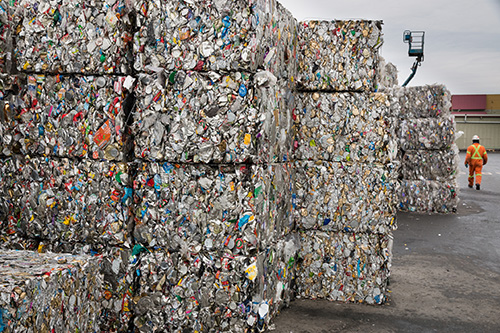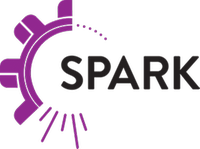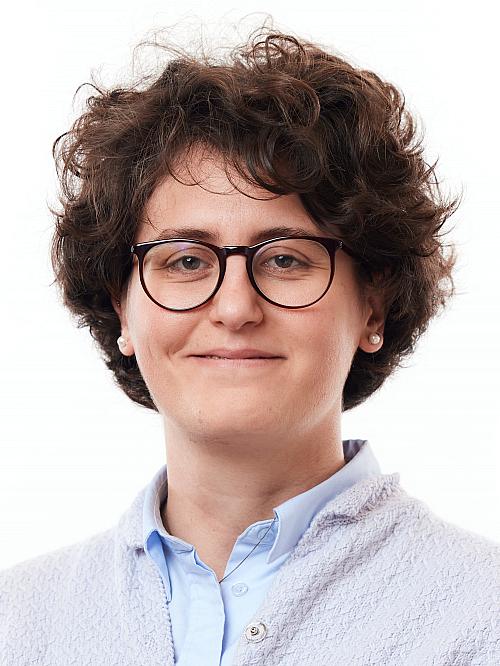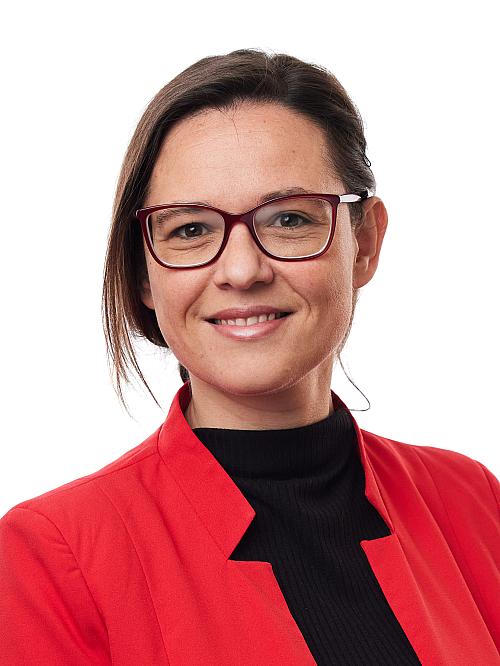7.3 million SEK for research towards a sustainable metal industry
Researchers at the School of Engineering (JTH), Jönköping University, have been awarded over seven million SEK in funding from Vinnova for three projects that will provide sustainable solutions for Sweden’s aluminium and automotive industries.

(image:iStock)
For transition to a sustainable metals industry, the question of materials supply and recycling is becoming more and more important for companies. Within the strategic innovation program ‘Metallic Materials’, more than 24 million SEK is being invested in the program’s call “Sustainable Metal Industry – Material Supply” which looked for special research areas related to material supply, such as traceability and circularity.
‘Klimatanpassat Renat Aluminium’ (KliRAl), ‘Manufacturing of Al-MMC brake discs from recycled Al-Si alloys’ (MaReAl) and ‘Increased use of recycled aluminum in foundry processes’ (InReAl) are three of the seven research projects that have been successful in the call and will receive funding from the Swedish innovation authority Vinnova. The first two projects are coordinated by JTH, while the third is led by RISE with JTH as a research partner.
Purifying recycled aluminium
KliRAl aims to develop treatment technology for both primary aluminium and secondary (recycled) aluminium, that will purify it from pollutants such as iron and copper that are enriched during recycling, but also to be able to handle elements such as manganese, silicon and zinc, enabling the separated material to be reused and remade into new products.
The project, which runs from 2022 until 2025, is being coordinated by JTH with participating companies Gränges Finspång AB, Hydro Extrusion Sweden AB, Kubal, Stena Aluminium AB, Bryne AB and Swerim AB. The project has a budget of 8,1 million SEK of which 4 million SEK will come from Vinnova.
“I am very happy to say that this project has the potential to resolve issues that will allow for a significant reduction of the carbon footprint of the Swedish aluminium industry. The interest for this project is great, with partners from the whole spectrum, including both primary and secondary aluminium producers, sheet metal and extruded profile producers and the casting industry.” says the project leader, Anders Jarfors, Professor of Materials and Manufacturing at JTH.
Making lighter brake discs
MaReAl aims to include recycled aluminium alloys in the production of metal matrix composites that can be used to make brake discs for vehicles that are 50% lighter in weight. This will help reduce fuel consumption and emissions in regular vehicles. Moreover, lightweight brake discs are important for the growing market of electric cars.
“Aluminium-based composites are valid candidates for replacing cast-iron in heavy automotive components, like brake discs. The use of recycled aluminium-silicon alloys is vital in reaching the sustainability development goals of the next decades. The project also opens the door to recyclability of the composite, the next assessment step required in the sustainable market,” says Lucia Lattanzi, project leader of MaREAl and PostDoc at the Materials and Manufacturing Department at JTH.
The project, which runs from 2022 until 2025, is being coordinated by JTH with the participation of the Research Institutes of Sweden (RISE), Automotive Components Floby AB, Gränges Finspång AB), and Comptech i Skillingaryd AB.The project has a budget of 7,9 million SEK, of which 3.9 million SEK will come from Vinnova.
Recycled aluminium for the automotive industry
JTH is also a research partner in another project, InReAl, which looks at recycled aluminium. The project aims to increase knowledge on the impact of increased alloy elements on recycled alloys performances looking especially at the fatigue and corrosion resistance. Both properties are essential in order to apply recycled aluminium to the automotive industry. The project is coordinated by RISE and Caterina Zanella, Professor of Materials and Manufacturing focusing of surface technology and Corrosion will be coordinating the research work at JTH that will focus on the corrosion and durability of the recycled alloys.
The project, which runs from 2022 until 2024, is being coordinated by RISE with participating companies Scania CV AB, VOLVO AB and Stena Aluminium. The project has a budget of 8,1 million SEK of which 2,7 million SEK will come from Vinnova.
%20(3)%20spark.png)
KliRAl, MaReAl and InREAl are part of SPARK, Jönköping University’s research and education environment within knowledge intensive product realization. Based on industrial needs, SPARK develops new knowledge and competence in collaboration with industrial and academic partners. The projects are part of the SPARK sub-envionment Sustainable Materials, Manufacturing and Cast Components.
Find out more about this environment here.
Contact
For infromation about the KliRAl project:
- Professor Materials and Manufacturing - Casting
- School of Engineering
- anders.jarfors@ju.se
- +46 36-10 1651
For infromation about the MaReAl project:
- Leave of absence
- Assistant Professor Materials and Manufacturing - Casting
- School of Engineering
- lucia.lattanzi@ju.se
- +46 36-10 1509
For infromation about the InReAl project:
- Professor surface technology
- School of Engineering
- caterina.zanella@ju.se
- +46 36-10 1691



